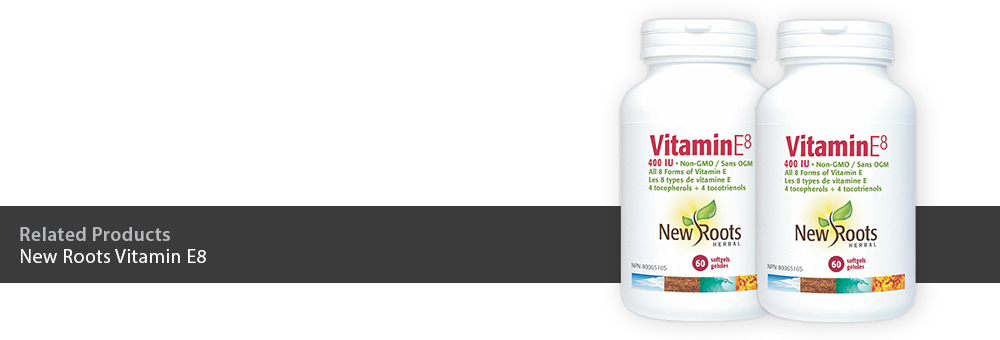Better Health with Vitamin E
The ability of plants to synthesize their own vitamin E is among the critical biochemical processes for the evolution of life on earth. There are eight naturally occurring forms of vitamin E found in nature, they’re broken down into two groups called tocopherols and tocotrienols. The antioxidant properties of this entire spectrum of fat-soluble compounds give seeds the resiliency to exploit a wide variety of ecological niches throughout the world. Their synergistic action protects their delicate DNA while preserving their carbon-based energy stores, often for many years to germinate when favourable conditions prevail.
The relevance for our health is this group of vitamins are essential; our bodies can’t make them. The good news is we can harvest their benefits. Botanically sourced Vitamin E protects us from lipid peroxidation, the process where free radicals (atoms or molecules that lack an electron) steal electrons from cells; a destructive process which leaves us prone to disease, illness and an appearance that may regrettably exceed our biological age. Free radicals are compounds formed as a byproduct of the conversion of food to energy, kind of like exhaust from a car. We’re also exposed to free radicals from environmental pollutants in our water and air supply, even ultraviolet rays from sunlight can compromise our health. Antioxidant action is simple, vitamin E shares electrons with harmful free radicals, which neutralizes them. Consider it a peace offering with a predator.
Dietary sources of vitamin E include nuts, seeds and whole grain foods; however, supplementation with vitamin E delivers a measurable dose health care practitioners can monitor. Vitamin E has been researched for a broad clinical spectrum spanning cognitive impairment to cardiovascular decline. Cells throughout the body are under constant oxidative stress; this accounts for the fact virtually every tissue and organ system can benefit from naturally sourced vitamin E. It’s easily recognized, absorbed and transported throughout the blood stream. The initial benefit of vitamin E supplementation occurs “en passant” as vitamin E within the bloodstream exerts antioxidant action within arteries. Vitamin E has also been extensively researched for its antioxidant action within the brain and nervous system. This could lead to interesting developments in the field of healthy aging from a cognitive perspective. Kidney, liver and epidermal health are among the many organ systems that could also benefit from vitamin E consumption and supplementation.
New Roots Herbal Vitamin E8 delivers the naturally sourced and non-GMO benefits of complete Vitamin E benefits in both 200 and 400 IU formats.
